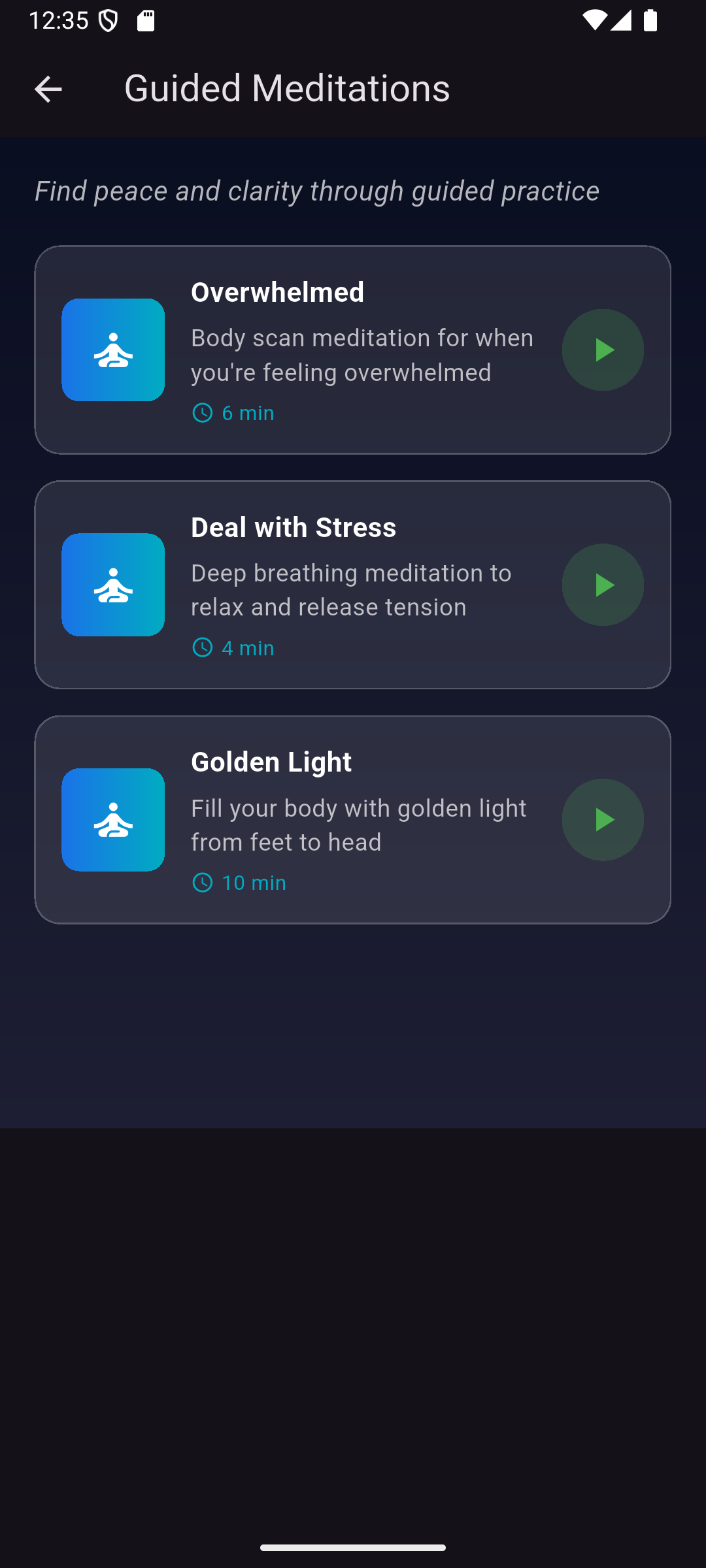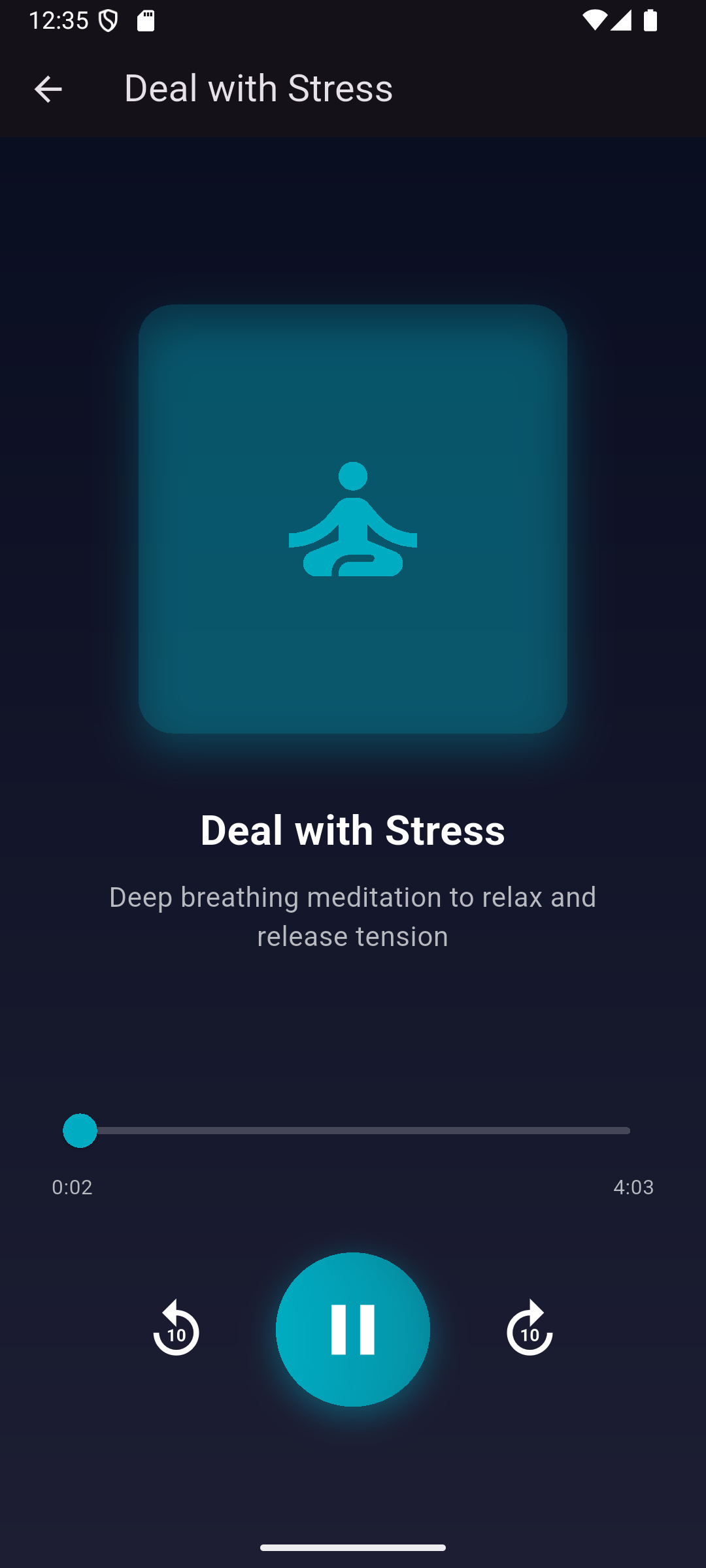
🧘 Meditation Overview
Discover how guided meditation helps you observe urges without acting on them, reduce anxiety that fuels relapses, and build the mental strength needed for lasting recovery.
Guided meditations designed specifically for porn addiction recovery. Build awareness, reduce reactivity, and strengthen self-control.


Watch how this feature helps you on your recovery journey

Discover how guided meditation helps you observe urges without acting on them, reduce anxiety that fuels relapses, and build the mental strength needed for lasting recovery.
Meditation isn't about stopping thoughts or achieving some mystical state - it's about training your mind to observe urges and impulses without automatically reacting to them. This skill is crucial for porn addiction recovery.
When you meditate regularly, you create space between urge and action. Instead of an urge leading immediately to relapse, you learn to notice the urge, acknowledge it, and let it pass. This is the foundation of impulse control.
Qura's guided meditations are specifically designed for recovery. Body Scan meditation builds awareness of physical sensations and tension that often precede urges. Golden Light visualization helps process shame and cultivate self-compassion. Anxiety reduction meditations address the stress and discomfort that frequently trigger relapses.
All sessions are fully guided with calming voice narration, background music, and adjustable lengths from 5 to 20 minutes. Perfect for beginners or experienced practitioners.
Meditation trains you to notice urges as temporary mental events rather than commands you must obey. This creates crucial space for conscious choice.
Regular meditation literally changes your brain structure, strengthening the prefrontal cortex (impulse control) and reducing reactivity in the amygdala (emotional reactions).
Porn addiction is often fueled by shame and anxiety. Meditation practices like Golden Light help you process these emotions with self-compassion instead of self-criticism.
Each meditation session is practice in sitting with discomfort without escaping. This skill translates directly to sitting with urges without acting on them.
Research shows that meditation is one of the most effective tools for addiction recovery. Studies on mindfulness-based relapse prevention (MBRP) demonstrate significant reductions in relapse rates compared to standard treatment alone.
The mechanism is clear: meditation strengthens your brain's ability to notice cravings without automatically acting on them. It literally rewires neural pathways, making impulse control easier over time. For porn addiction specifically, this means you can observe an urge, acknowledge it, and choose not to act - rather than feeling powerless against it.
Qura's meditation library is designed specifically for the challenges of porn addiction recovery. Body scan helps you recognize physical warning signs. Anxiety reduction addresses a major relapse trigger. Golden Light visualization helps heal the shame that keeps many people trapped in the cycle.
Systematically bring awareness to each part of your body. Learn to recognize physical tension and sensations that often precede urges, giving you early warning to take preventive action.
10, 15, 20 minutes
Visualization practice for processing shame and building self-compassion. Imagine healing golden light filling your body, releasing judgment and embracing your worthiness of recovery.
10, 15 minutes
Focused meditation for calming racing thoughts and reducing stress. Since anxiety is a major relapse trigger, this practice helps you address the root cause before urges arise.
5, 10, 15 minutes
Specific practice for observing urges without judgment or reaction. Learn to see cravings as temporary waves that rise and fall naturally when you don't feed them with attention.
5, 10 minutes
Porn addiction creates an automatic stimulus-response loop: trigger → urge → action. Meditation teaches you to insert awareness between urge and action, breaking this automatic cycle.
Many people turn to porn to escape uncomfortable feelings - boredom, loneliness, stress, shame. Meditation trains you to sit with these feelings without needing to escape, removing a major driver of relapses.
Brain scans show meditation literally thickens the prefrontal cortex - your impulse control center. This isn't metaphorical; you're physically strengthening the part of your brain responsible for saying "no" to urges.
Qura is being built for people like you, by someone who's been where you are. As a founding member, your feedback and feature requests will directly shape what we build next. Join the waitlist and be part of something meaningful.
Join the Waitlist